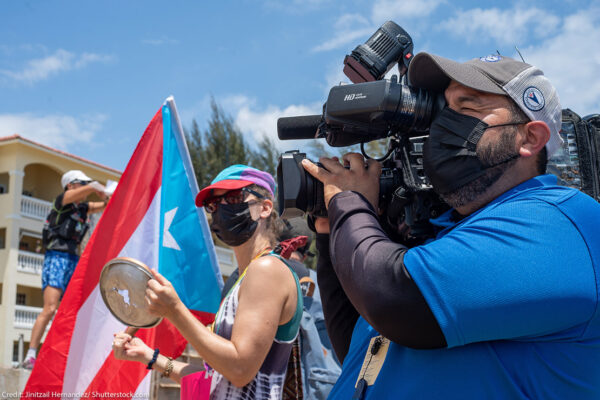Minnesota Bill to Stop Funeral Protests May Backfire, Warns ACLU
FOR IMMEDIATE RELEASE
CONTACT: media@aclu.org
ST. PAUL -- The American Civil Liberties Union of Minnesota today warned a joint meeting of the Senate Crime Prevention and Public Safety Committees that the popular push to ban protests at military funerals may actually end up causing the state to finance future protests by the followers of anti-gay activist Fred Phelps.
While the ACLU said it has no current intention to challenge the law should it be enacted, history proves that a challenge will arise -- most likely by Phelps himself -- and with solid legal footing, the amount the state would be forced to pay in attorneys fees would help fund his organization for a long time to come.
“Public opinion overwhelmingly rejects the type of conduct that has been undertaken by Phelps and his followers, and in an election year, the draw to such a popular and uncontroversial topic is clear,” said Chuck Samuelson, Executive Director of the ACLU of Minnesota. “However, speech that is cruel, distasteful and upsetting is still protected by the First Amendment, and by leaving the state on precarious legal footing, what this bill is doing is encouraging Phelps to sue, and have the state help fund his operations.”
Phelps and his followers have gained national notoriety for picketing at the funerals of U.S. soldiers, gays and people who have died from AIDS, claiming that God is punishing the United States for supporting homosexuality.
According to the ACLU, the bill would have unintended consequences for other types of protests as well. Protesters who unknowingly organize along a funeral procession route, be they striking workers or abortion protesters, would also have to be either arrested, or banned from picketing, despite having nothing to do with the funeral. However, the ACLU warned that changing the bill to specify the types of protests that are permissible would only further decrease the constitutionality of the new law.
“The Minnesota law enforcement community currently has plenty of options for dealing with disruption of the peace, and through active enforcement of existing laws, the state’s intended goal could be reached without weakening the civil liberties of Minnesotans and potentially funding this radical hate group,” Samuelson said.


